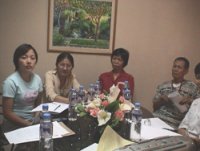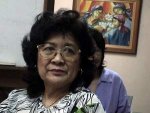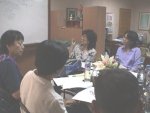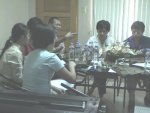

Cultures and Responsibility Workshop
by Pinky CASTELO CUPINO
Associated Central Topics:
Cultures and responsibility .
Associated General Topics:
Indigenous peoples .
Cross-cultural .
Culture .
Dr. Sylvia Guerrero of the University of the Philippines facilitated a workshop attended by ten participants on the topic Cultures and Responsibility last March 31, 2006. The workshop focused on the concepts of indigenous responsibility. The result of the workshop will be part of the data that will be incorporated in a chapter of a book on Ethical Foundations and Social Practices (a socio-linguistic approach). It is part of the Intercultural Research Project on Responsibility. Dr Guerreo is doing this publication project along with Edith Sizoo of Netherlands and Makarand of India, among others.
Participants in the workshop on Culture and Responsibility included Ruben Martinez, an anthropologist connected with the Organization for Training, Research and Development, social development worker Pinky Cupino of the Philippine Charter Facilitation Team, environmentalist Noli Abinales of the Buklod Tao Foundation, church worker Virtudes Bobis of the Mother Teresa School of Practical Nursing, teacher Bernalyn Albin of the Tao Foundation, Sylvia H. Guerrero, Center for Women Studies, and scholars and academicians Juline Dulnuan, Remedios Mondiguing, Geraldine Fiag-oy and Lynette Quintillan of the University of the Philippines.
Local concepts of responsibility include "bayanihan", which is the act of helping another family within the community such as building their houses. Among the indigenous leaders assuming community responsibility are the "datu", who is the village head, the "babaylan", who is the community healer, and the "panday", who is the community blacksmith.
These indigenous leaders are slowly fading out of the community consciousness because of interventions from government and outside cultures. However, in many indigenous communities, these leaders are still revered.
The "babaylan" is not only a healer but a carrier of community culture through oral traditions like chanting, singing, and epics. Indigenous peoples also subscribe to the spirit world. All living things like trees, plants, animals are said to be inhabited by good and bad spirits. This is a way by which indigenous peoples revere the natural environment and sustain the ecosystem, because of their deep respect for all living things.





